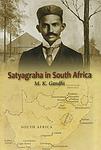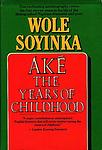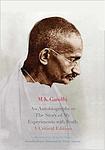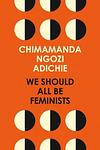The Greatest Nigerian, Indian "Nonfiction" Books Since 1900
Click to learn how this list is calculated.
This list represents a comprehensive and trusted collection of the greatest books. Developed through a specialized algorithm, it brings together 300 'best of' book lists to form a definitive guide to the world's most acclaimed books. For those interested in how these books are chosen, additional details can be found on the rankings page.
Genres
Countries
Date Range
Reading Statistics
Click the button below to see how many of these books you've read!
Download
If you're interested in downloading this list as a CSV file for use in a spreadsheet application, you can easily do so by clicking the button below. Please note that to ensure a manageable file size and faster download, the CSV will include details for only the first 500 books.
Download-
1. Satyagraha in South Africa by Gandhi
This book is a personal account of the author's experiences during the Indian struggle for civil rights in South Africa. It details the development and implementation of the concept of Satyagraha, or non-violent resistance, as a means of combating social injustice. The book provides a unique insight into the author's philosophies and strategies of peaceful protest, including his belief in the power of truth and the necessity of self-sacrifice in the fight against oppression.
-
2. Ake: The Years Of Childhood by Wole Soyinka
"Ake: The Years of Childhood" is a memoir that chronicles the early years of a Nigerian boy growing up in the town of Ake. Set in the 1940s, the book vividly captures the author's experiences, from his close-knit family life to his encounters with colonialism and the struggle for independence. Through his insightful and lyrical prose, the author takes readers on a nostalgic journey filled with rich cultural traditions, humorous anecdotes, and poignant reflections on the complexities of childhood.
-
3. The Story Of My Experiments With Truth by Mahatma Gandhi
This book is an autobiography that details the personal journey of a prominent leader who played a key role in India's struggle for independence from British rule. It explores his philosophy of nonviolent resistance and truth, which he refers to as "Satyagraha," and traces his development from a young, unsure boy into a principled activist committed to social justice. The narrative delves into his experiments with diet, celibacy, and other personal challenges, reflecting his quest for self-improvement and moral integrity, which he believed were essential for political leadership and social reform.
-
4. My Story by Kamala Das
"My Story" is an intimate memoir that delves into the life of a woman navigating the complexities of her existence in mid-20th century India. It candidly explores themes of love, marriage, and womanhood, as the author recounts her journey from a young girl to a renowned poet and writer. The narrative is marked by its honesty and emotional depth, addressing the author's unconventional choices and her search for personal freedom amidst the constraints of a traditional society. Her reflections on sexuality, fidelity, and the literary world offer a poignant look at the challenges faced by women in asserting their identity and creativity.
-
5. The History Of The Yorubas by Reverend Samuel Johnson
"The History of the Yorubas" is a comprehensive account of the rich cultural heritage and historical development of the Yoruba people, a major ethnic group in Nigeria. Written by Samuel Johnson, the book delves into the origins, traditions, and societal structures of the Yoruba, exploring their religious beliefs, political systems, and significant historical events. Through meticulous research and detailed storytelling, Johnson provides valuable insights into the Yoruba civilization, making this book an essential resource for anyone interested in African history and culture.
-
6. Resources, Values And Development by Amartya Sen
"Resources, Values, and Development" is a comprehensive examination of the interplay between the availability of resources, the values that guide their use, and the resulting impact on development. The book challenges traditional economic measures of development, such as GDP, and argues for a broader understanding that incorporates human welfare and freedom. It delves into the role of ethics in economics, the importance of individual capabilities, and the need for equity in the distribution of resources. The author's influential ideas on development economics and social choice theory are presented, advocating for a more humane and inclusive approach to economic development that prioritizes the enhancement of human lives over mere economic growth.
-
7. Male Daughters, Female Husbands by Ifi Amadiume
"Male Daughters, Female Husbands" is an anthropological exploration of gender roles and power dynamics within the Igbo society of Nigeria. The book challenges traditional Western notions of gender and sexuality, focusing on the concept of "female husbands" - women who assume the roles and responsibilities typically associated with men. Through extensive research and personal narratives, the author examines the historical and cultural context of these gender roles, shedding light on the complex intersections of gender, power, and identity in Igbo society.
-
8. Development As Freedom by Amartya Sen
The book in question is a seminal work in the field of economics and development studies, which argues that true development is best understood as the process of expanding the real freedoms that people enjoy. It challenges traditional indicators of growth, such as GDP, suggesting that they fail to capture the essence of human well-being. Instead, it posits that development should be assessed by the range of choices available to individuals, including access to education, healthcare, and the ability to participate in the economic and political life of society. The author emphasizes the interdependence of various types of freedoms, from political rights to economic opportunities, and the role they play in empowering people to live the lives they value.
-
9. We Should All Be Feminists by Chimamanda Ngozi Adichie
The book explores the importance of feminism in today's society and argues that gender equality is not just a women's issue, but a concern for everyone. Drawing from personal experiences and anecdotes, the author highlights the various ways in which gender inequality manifests itself and offers insightful perspectives on how we can work towards a more inclusive and equitable world for all.
-
10. Delhi by Khushwant Singh
"Delhi" by Khushwant Singh is a captivating exploration of the city's rich history, culture, and people. Through vivid anecdotes and personal experiences, the author paints a vivid picture of Delhi's transformation from ancient times to the present day. From the Mughal era to British rule, and the struggles of Partition, Singh delves into the city's tumultuous past while highlighting its enduring charm. With a blend of wit and nostalgia, this book offers readers a delightful journey through the vibrant streets, monuments, and diverse communities that make up the heart of Delhi.
Reading Statistics
Click the button below to see how many of these books you've read!
Download
If you're interested in downloading this list as a CSV file for use in a spreadsheet application, you can easily do so by clicking the button below. Please note that to ensure a manageable file size and faster download, the CSV will include details for only the first 500 books.
Download








